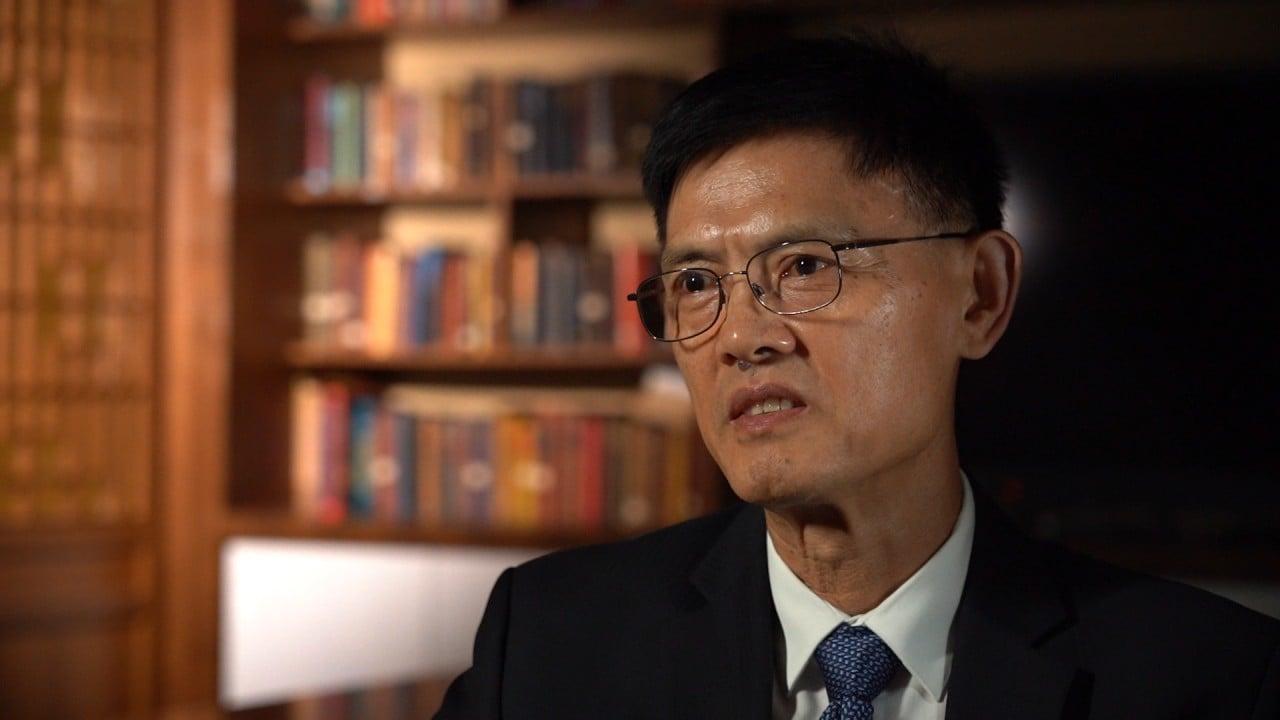
Lieber faced up to 16 months in jail for lying to federal authorities about his ties to the Wuhan University of Technology and Beijing’s talent programme, filing a false income tax return and failing to report his foreign bank accounts with the Internal Revenue Service.
In addition to house arrest, he was sentenced to two days in prison, which he had already served after his arrest; a fine and tax restitution of US$83,600; and two years of supervised release.
One of his lawyers, Marc Mukasey, argued during sentencing that his client’s reputation “is in tatters” and that his incurable form of cancer made him a “sitting duck for disease” if imprisoned. Prosecutors had asked for larger fines and restitution and a sentence of 90 days since his cancer is in remission.
“He is not the greedy villain the government talks about,” Mukasey said. “Whatever money he got legitimately or illegitimately, most of it went to philanthropy or caring for his children.”
His conviction was a key chapter in the contentious China Initiative, which was ended after several failed prosecutions and outcry from the Asian-American community. But the Biden administration has said it will continue pursuing cases involving Chinese national security threats.
In December 2021, the federal jury heard dramatic recordings made minutes after Lieber’s arrest in which he can be heard trying to talk his way out of year’s-long efforts to hide or downplay his ties to the talent programme, all but admitting to several of the charges.
Participating in the Chinese programme is not a crime, and indeed many academic institutions encouraged it as a way to leverage research dollars when US-China ties were better. But prosecutors argued that Lieber lied about his role after inquiries by the US Defence Department and National Institutes of Health, which had awarded him US$15 million in research grants.
The Wuhan university had agreed to pay him up to US$50,000 per month plus another US$158,000 in living expenses, and emails presented in court showed him arranging with university administrators for payment in US cash and in deposits made to a Chinese bank account.
Lieber leaves the federal courthouse in Boston after being sentenced to supervised release and ordered to pay more than US$83,000 in restitution and fines. Photo: AP
Frank Wu, president of Queens College and a legal scholar, said that given the importance of case law and precedent, Lieber’s sentence will influence other China Initiative cases, prosecutions and plea deals even though Lieber is Caucasian and many of the other cases have involved Asian-American professors.
Judges have been sceptical of some China Initiative cases and related prosecutions, many of which involved relatively minor paperwork transgressions rather than espionage or intellectual property theft, which is harder to prove.
“Even those who are guilty are not guilty of terrible crimes. Judges of all backgrounds have shown their scepticism about this whole endeavour,” said Wu, who is not related to Jeremy Wu. “They’ve dismissed cases on their own initiative, approved plea deals and imposed what could only be regarded as light sentences for felonies.”
Among the failed cases was one involving Massachusetts Institute of Technology professor Gang Chen. In January 2022, prosecutors dropped charges against him after he was accused of hiding ties to China while seeking grant money.
According to Georgetown University, China has some 43 national-level talent programmes and more than 200 local initiatives. This comes as the US and China intensify competition for primacy in semiconductors, artificial intelligence, quantum computing and other cutting-edge technologies.
A 2018 report by the US National Intelligence Council called the talent programmes a way to “facilitate the legal and illicit transfer of US technology, intellectual property and know-how” to China. In early 2022, FBI Director Christopher Wray said his agency had more than 2,000 China-related cases and was opening new ones every 12 hours.
Lieber’s lawyers said the damage to their client’s career was sufficient punishment.
“Professor Lieber is profoundly remorseful for the facts and circumstances that have brought him before this court,” they wrote. “He no longer works at Harvard. Travel to China – which amounted, in total, to no more than a couple of weeks – has shattered his entire life. His reputation has been ruined. At 64 years old, Professor Lieber prays to be able to live out whatever time he has left at home.”
Wire services contributed to this report.

